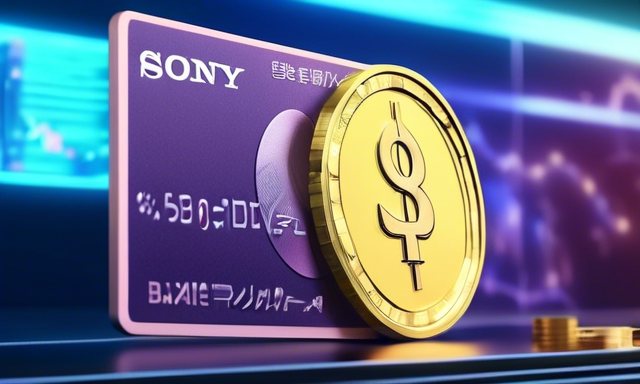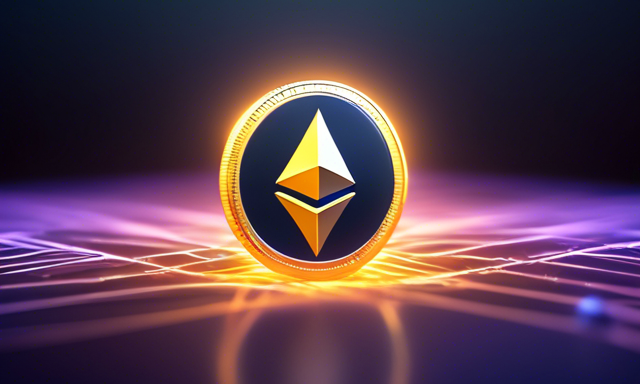Exciting Developments on Soneium: Sony’s Step into the Crypto Space 🚀
Sony, the renowned tech giant, has made headlines by announcing its venture into blockchain technology with the upcoming launch of Soneium, an Ethereum layer-2 solution. This year, the company intends to introduce a stablecoin linked to the Japanese yen, facilitated by its subsidiary, Sony Bank. With its launch in the testing phase, Soneium is set to reshape the blockchain landscape and enhance the Japanese market’s interaction with cryptocurrencies.
Overview of Sony’s Layer-2 Blockchain Initiative 🌐
On August 23, Sony disclosed its plans to debut Soneium, a new Ethereum layer-2 blockchain designed to support a stablecoin representative of the yen. The company’s engagement in blockchain technology is a departure from its traditional focus on games and entertainment.
In a thorough blog entry, Sony detailed its vision for the blockchain, which aims to consolidate creators, developers, communities, and end-users under a single interoperable architecture. The aspiration is to generate a variety of decentralized services that have yet to be revealed.
Soneium’s Collaborative Ecosystem 🤝
Sony has partnered with several industry leaders for this initiative, including:
- Astar Network: Provides bridging technology for fund transfers between Polkadot and Ethereum.
- Chainlink: Functions as an oracle within the ecosystem.
- Circle: Will support the new stablecoin.
- Alchemy: Offers RPC support for seamless functionality.
- The Graph: Supplies data indexing services.
While the exact launch date remains unconfirmed, it is anticipated that the full version will be ready by Q1 2025. Speculation about a possible airdrop has begun, although currently, users can only engage with the “Minato” testnet.
Additionally, an incubation program called “Soneium Spark” aims to nurture new projects, although no airdrop campaign has been formally announced yet.
The Stablecoin Initiative: Yen Focus 🌟
Recent unofficial reports suggest that Sony is examining the development of a yen-pegged stablecoin in collaboration with Sony Bank. The conversations around this new cryptocurrency have gained traction online, emphasizing Sony’s commitment to establishing a robust digital currency framework within Japan’s regulatory landscape.
By facilitating yen-based stablecoins, Sony could significantly enhance its layer-2 system, appealing to both Western and Eastern clients. However, this initiative still requires regulatory approval before becoming a reality, as Japan currently lacks comprehensive stablecoin regulations.
The integration of a stablecoin aligns with Sony’s ambitious fintech goals, reflecting the growing acknowledgment of digital assets by Japanese institutions.
The Landscape of Non-USD Stablecoins 📊
With the introduction of a yen-backed stablecoin, Sony aims to penetrate a market predominantly occupied by US-centered digital currencies. Recent analyses indicate that the fiat stablecoin segment on Ethereum is overwhelmingly governed by the US dollar, accounting for over 99% of the market.
- Euro: Holds 92% of the remaining 0.68% market share.
- Australian Dollar (AUD): Comprises 4.04%.
- British Pound (GBP): Accounts for 3.09%.
At present, the Japanese yen has limited representation in the stablecoin sector, overshadowed by the significant presence of American and European cryptocurrencies. Nevertheless, there is growing interest among numerous Web3 companies to set foot in Japan’s vibrant crypto environment, highlighting the market’s potential.
Brad Garlinghouse, CEO of Ripple, noted that there would likely be strong demand for a yen stablecoin in Japan. He stated, “People will want to hold stablecoins in yen, and I think it’s only a matter of time.” This sentiment reflects the optimistic outlook surrounding the future of digital currencies in Japan.
Furthermore, cryptocurrency exchange Binance is also exploring a stablecoin initiative, aligning with Sony Bank’s approach. However, regulatory constraints pose challenges, as the absence of a clear framework hampers substantial investments. Sony’s recent foray into the crypto realm could pave the way for other significant players in the industry.
In conclusion, Sony’s efforts to launch the Soneium blockchain and introduce a yen-based stablecoin illustrate the company’s commitment to advancing the fintech landscape in Japan. As the project develops, it remains to be seen how it will influence both the local and global cryptocurrency markets.





 By
By

 By
By
 By
By
 By
By